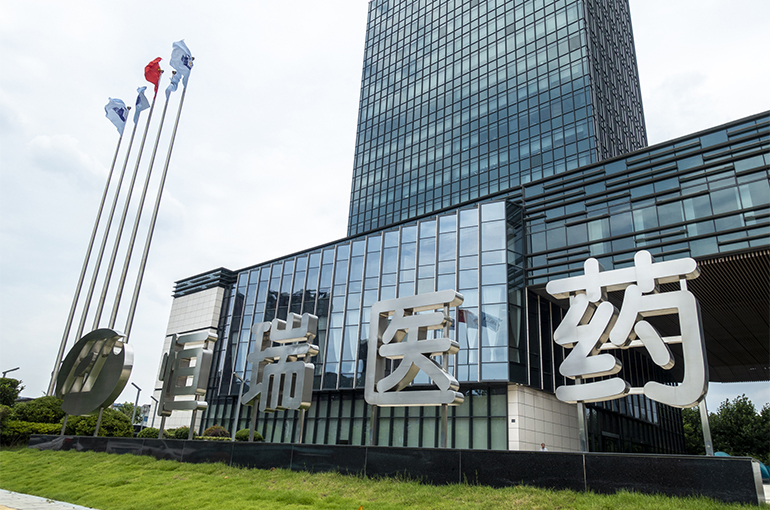 China's Hengrui Sinks as New Cancer Drug Fails to Get FDA Nod
China's Hengrui Sinks as New Cancer Drug Fails to Get FDA Nod(Yicai) May 20 -- Shares in Jiangsu Hengrui Pharmaceuticals dipped today after the Chinese drugmaker’s new cancer treatment, which was approved to go to market in China in January last year, failed to get the greenlight in the US.
Hengrui’s share price [SHA: 600267] closed down 2.1 percent at CNY43.83 (USD6).
Hengrui has received a complete response letter from the US Food and Drug Administration regarding its Biologics License Application for the combination of its humanized PD-1 monoclonal antibody Camrelizumab injection along with apatinib mesylate tablets for first-line treatment of unresectable or metastatic hepatocellular carcinoma patients, the company said yesterday.
A complete response letter is a regulatory action indicating that the FDA's review is complete but that the application did not meet the required standards, the Lianyungang-based firm said yesterday. In the letter, the FDA provided a detailed explanation of the deficiencies in the proposal, along with suggestions for corrective actions.
Hengrui has been requested to address some inadequacies in its manufacturing process, and if it can do so within a certain timeframe, the FDA will revisit the application, the drugmaker said. No other explanation was given for the FDA’s decision to delay the approval.
Hengrui will remain in close contact with the FDA and resubmit its application as soon as possible, with the aim of getting the drug onto the shelves in the US quickly, it added.
FDA's on-site factory inspections are notoriously tough. FDA officials can spend over 20 hours observing the laboratory testing and manufacturing processes, a chief quality officer at a pharmaceutical firm that underwent such an inspection told Yicai.
When the FDA visited his firm, the company had to provide over a thousand electronic documents and more than three thousand written ones, he said. The FDA spent eight hours on site observing the preparation filling process alone.
Last October, Hengrui granted exclusive development rights of Camrelizumab, which trades under the name AiRuiKa®, in combination with apatinib mesylate tablets to US biopharma firm Elevar Therapeutics in all major markets except China and South Korea. This is the same therapy that is the subject of the FDA application.
AiRuiKa® was given the greenlight in China in May 2019, and since then it has been approved for nine medical indications in the country.
PD-1 drugs are leading a revolution in cancer treatment. There are 11 PD-1 drugs on the market in China, of which nine were developed by Chinese companies. Three China-made PD-1 drugs have been given the greenlight to go to market overseas so far. Two of these, Shanghai Junshi Biosciences' toripalimab and BeiGene's tislelizumab, have received approval from US authorities.
Editors: Tang Shihua, Kim Taylor